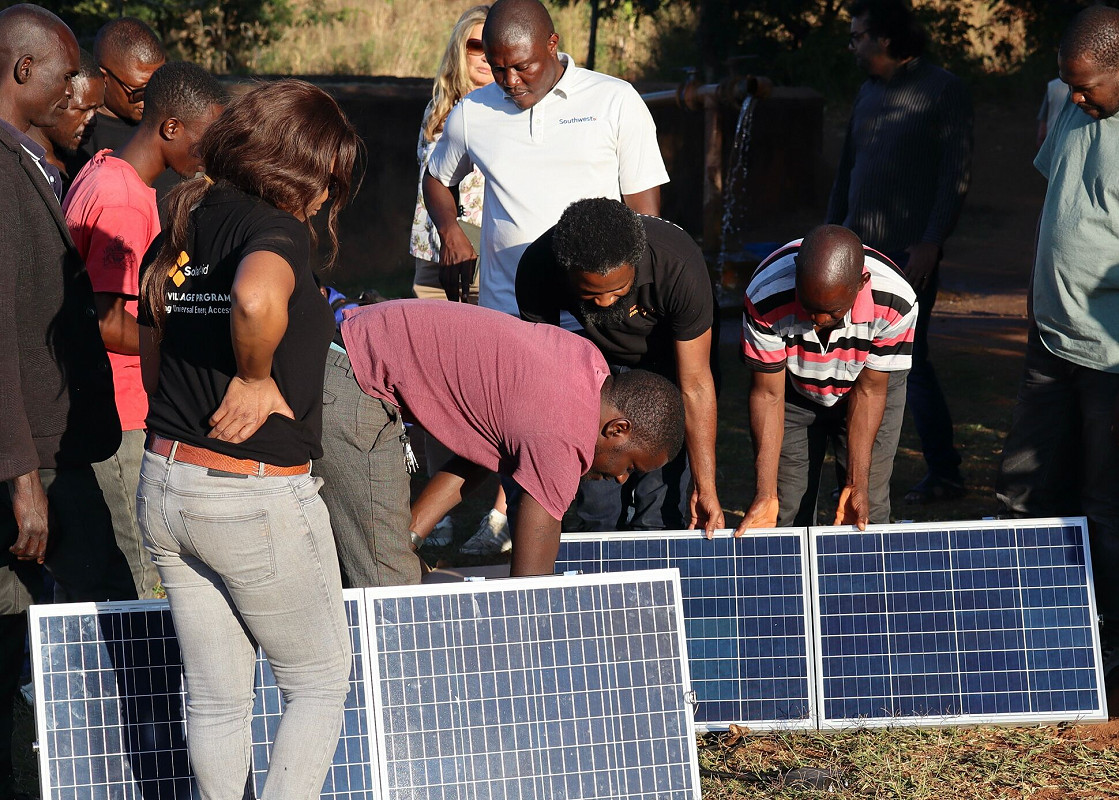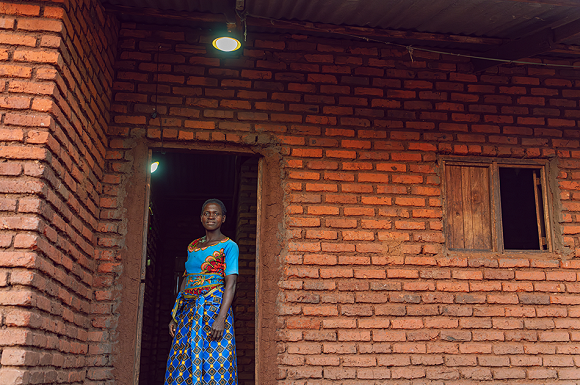13/09/2023
Turner Kirk Trust supports scale-up of innovative solar energy pilot in rural Malawi

The Turner Kirk Trust-backed charity SolarAid has announced the successful rollout of phase two of the Light a Village project, providing sustainable lighting systems to a further 2000 homes in Malawi.
The announcement comes ahead of Global Goals Week (15-24 September), bringing awareness to the UN’s Sustainable Development Goals — one of which is universal access to sustainable, reliable sources of energy.
The Light a Village project was founded to provide sustainable, safe lighting alternatives to the kerosene lamps, grass fire, and paraffin candles commonly used in rural Africa. In Malawi, only 14% of the whole population is currently served by the electricity grid, which drops to 6.6% in rural areas.
Lack of access to safe lighting prevents people from being able to work or study after sunset and causes countless fire-related accidents.
The Turner Kirk Trust, co-founded and directed by Dr Ewan Kirk, funded the first phase of the pilot in 2021, kick-starting the project. Phase one was a success, bringing solar-powered lamps to 500 homes in Ntchisi, Malawi and developing the infrastructure and financial solutions to ensure the project could succeed long-term.
The Trust is a major funder of phase two, and has matched donations from other parties. Phase two has seen 2,000 more homes equipped with Solar Home Systems as well as 12 schools in Ntchisi. As a result, 100% of school facilities in the Ntchisi area now have access to safe and sustainable light.
The project is already recording access rates of up to 99% of rural households in the pilot area and high payment and usage rates, exceeding 89%.
SolarAid will continue to monitor the results of the second phase of the project. It hopes that the evidence produced will help draw in further funding and government support, to allow for a wide-scale roll-out across the country, and elsewhere in the region.
“It’s encouraging to see that the Light a Village project has been successful on a wider scale and that SolarAid’s innovate model is reproducible and watertight. This marks a crucial stage in bringing sustainable and safe energy to people across the continent and towards achieving the UN’s Sustainable Development Goals as soon as possible. It is incredibly rewarding to see the projects we support succeed and bring meaningful change to those who need it most.”
“The clock is ticking, and current solutions will not reach the hardest-to-reach within the time limit of 2030 set by the UN Sustainable Development Goals. This model demonstrates that it is possible to achieve universal access to energy within a short time frame, even within one of the poorest, most remote, communities in the world.”
“It was like magic. We were all so happy and excited to finally have light in our home. It was a beautiful moment for all of us. I felt so happy and proud to have this opportunity at last. We spent the whole evening studying and doing homework with my children. It was the first time they have ever been able to do this in our home. “Now that we have light in our home, we won't need to use dangerous sources of light like straw fire. It's also better for the environment to use solar power instead of burning things like straw. I have learned a lot about solar power. I didn't know much about it before, but now I understand how it works and how it can be used to help us. I think it's a really great technology, and I'm happy that it's being brought to our village."

